Berkeley Changemaker Technology Innovation Grant awardees announced
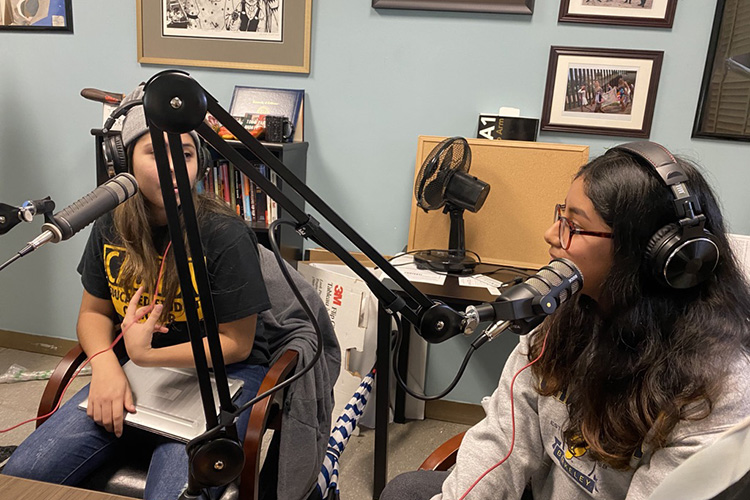
If necessity is the mother of invention, more than a few winners of the campus’s first-ever Berkeley Changemaker Technology Innovation Grants found inspiration in the teaching and learning challenges posed by the COVID-19 pandemic. Other initiatives address the timely topics of racial justice and equality.
Launched by the office of UC Berkeley Chief Technology Officer (CTO) Bill Allison in the office of Chief Information Officer Larry Conrad, the winning projects, announced today (Thursday, June 25), will share $400,000 in general funds that were earmarked by Conrad in the 2019-2020 school year for information technology (IT) innovation.
Allison said his goal in creating the competition was to tap Berkeley faculty who “push the frontiers of knowledge, designing technologies and practices that will change the world and make our university run better.” He assembled a 10-member review committee of students and staff from various academic fields, jobs and personal backgrounds to review the proposals.
“During this pandemic, there was a real danger that this grant program wouldn’t even happen because of everything going on and the fact that people were not able to physically come together to review the entries,” he added. “But we did it, and many of these projects — there were 18 submitted — are really relevant, and half involve COVID-19.”
The grants are part of Berkeley’s CTO Innovation Program, which is designed to bring together diverse groups across campus to engage in technology innovation that positively impacts the Berkeley of the future. The proposed innovation projects were required to support one or more of Chancellor Carol Christ’s three key campus strategies.
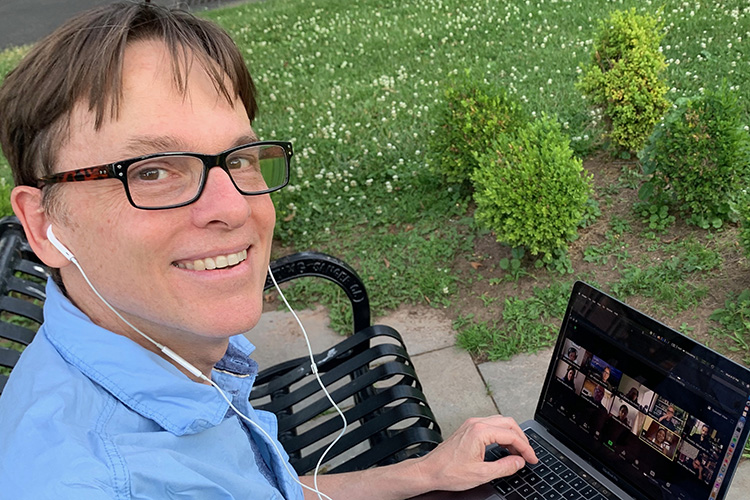
The winning projects
BeArs@Home. The pandemic led Berkeley’s College of Chemistry to develop an online chemistry laboratory framework focused on green chemistry that’s being admired by the college’s on- and off-campus peers. Each selection made on BeArs@Home — “Be” is for the element beryllium, “Ar” is for argon and “S” is for sulfur — directs a student to either a generic simulation to develop knowledge of common lab techniques or to a custom video tailored to Berkeley’s curriculum. Students will use lab notebooks to chart their progress; mistakes can be analyzed and reattempted.
“Our colleagues in biology have just started using the BeArs@home platform for their introductory lab curriculum, and instructors at other schools are already expressing interest in using this framework and dropping in their own videos,” said professor Matt Francis, chair of the College of Chemistry, who is leading the project with Anne Baranger, teaching professor and director of undergraduate chemistry. “Everyone is struggling right now to make remote learning a meaningful, positive experience; the idea of making something that works for your students in your style is something truly innovative that everyone can get behind.”
Data Justice-Community Justice. The UC Berkeley Data Justice-Community Justice Initiative will enhance community-driven research in the undergraduate curriculum. The project, in which students will create data science projects to address societal problems, links the public service mission of the university with instruction. Students will interact through some of the more than 100 existing partnerships that Berkeley’s American Cultures Engaged Scholars Program has with Bay Area communities, as well as with campus entities such as the Social Science Data Laboratory (D-Lab) and the University Library. Data sets will be accessible, searchable and sharable and collected in an ethically responsible way.
Victoria Robinson, ethnic studies lecturer and American Cultures Program director, said examples of data collection projects might include how youth violence prevention programs in East Oakland intervene in cycles of youth culture and life and how the current recession brought on by the COVID-19 crisis is affecting tenants in Richmond, a hub for tenants’ rights. Her fellow awardees are David Harding, professor of sociology and faculty director of the Social Sciences D-Lab, and Claudia von Vacano, executive director of the Social Sciences D-Lab and executive director and academic coordinator of Digital Humanities at Berkeley.
Ethnic Studies Podcasts. A center dedicated to new media with state-of-the-art recording equipment will be developed by lecturer, researcher and affiliated faculty member Pablo Gonzalez to help bring to life to voices rarely heard or centered through podcast production and augmented reality (AR) archival creation. For instance, students in the Chicano Studies course “Mexican and Central American Migration” will produce oral histories and research projects that utilize podcasts and AR as a central component. Similarly, in collaboration with the Ethnic Studies Libraries, which will host the center, the studio will develop a podcast that showcases the libraries’ Native American, Asian American, Chicanx and Latinx archives.
The funding also will help develop the infrastructure and curriculum that other faculty can use to develop audio- and AR-focused modules and assignments, and it will fund the hiring of the first cohort of undergraduate work-study students and a graduate student researcher. They will help operate the center, coordinate an ethnic studies course that emphasizes community service and help ethnic studies faculty to incorporate podcasting into their curriculum.
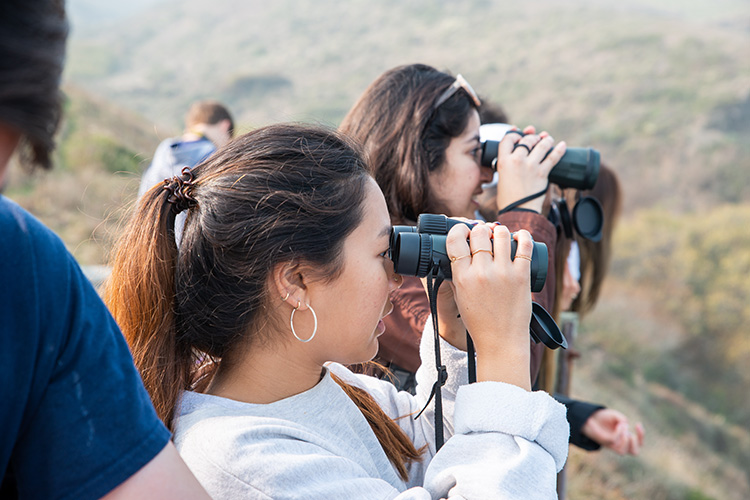
The Department of Integrative Biology Takes Remote Learning Outside. This department’s immersive, hands-on field courses in natural history that take place in the California outdoors are beloved by students, but professors wondered if they could survive via Zoom and social distancing in the era of COVID-19. And then they made it happen by investing in recording technology and graduate student ingenuity by developing rich content from the field that could be shared with students at home.
For instance, they pre-recorded, from diverse natural habitats, vistas and close-up details of organisms with instructions on collecting scientific data. They held live broadcasts from the field so students could join in discussions and help make field measurements and observations. They had students make observations outdoors in their home environments and gave them a wide-angle macro lens to attach to a smartphone or tablet to take high-quality images of organisms and then use apps to record their observations and crowdsource identifications. They trained students to make scientific tools from household objects.
Led by awardees Tamara Mau, integrative biology lab instruction manager, and integrative biology professors Paul Fine and Michael Nachman, the project will purchase equipment to record and livestream videos and to pay graduate students to create content.
“I am excited that this funding will allow our instructors to think outside the box in creating outdoor immersive experiences for students,” said Mau, “and that our instruction will be more inclusive, expanding opportunity for students — even if they are stuck at home — to contribute to science data collection.”
InsightXR: Re-imagining the Future of Design Learning in Virtual, Augmented and Mixed Reality. Funding for this project will allow the development of a virtual, augmented and mixed reality (VR/AR/MR) tool at the College of Environmental Design. InsightXR will allow innovative remote design collaboration techniques by giving faculty and students working off-campus the ability to interact with each other’s 3D models and provide multimodal feedback in synchronous or asynchronous mode. Designers will be able to collaborate with the recipients of their designs, as the app will generate highlighted areas displaying the most stakeholder interactions. The first InsightXR platform to be developed will be in AR, for testing during a fall 2020 architecture class that will explore how different architectural design choices promote natural light. AR is particularly suited for architecture design, said awardee Luisa Caldas, professor of architecture, since it enhances real world experiences by overlaying physical reality with digital information, enabling novel modes of design visualization and of interaction with different project partners.
Caldas said that InsightXR will enrich the online learning experience for students in design disciplines across campus, allowing them to better develop and evaluate the impact of their design proposals. Caldas, along with fellow awardee Elnaz Tafrihi Bailey, a Ph.D. student in architecture, aims by summer 2021 to bring the app to the public for use in both educational and professional applications of remote collaborative design across different domains and disciplines.
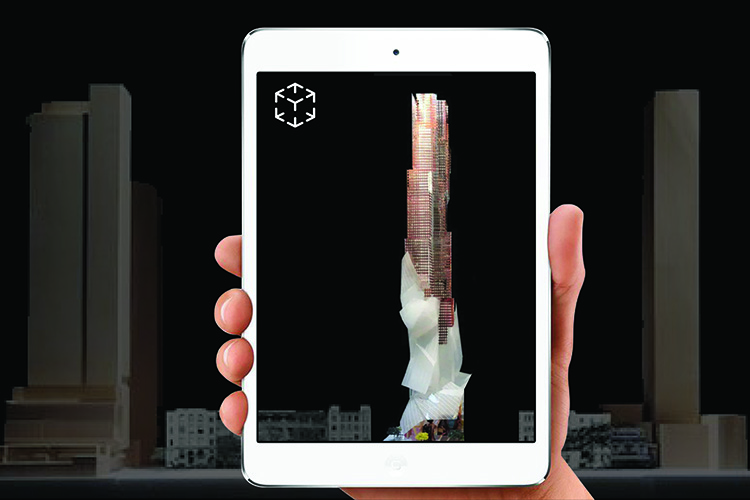
Lucid Learning. Awardee Eric Paulos, associate professor of electrical engineering and computer sciences and chief learning officer at the Jacobs Institute for Design Innovation, will create a suite of tools to help students in the fields of architecture, art practice and theater, dance and performance studies so they can incorporate AR and VR into their iterative processes of collaboration, design and feedback. In quantitative courses in engineering and the sciences, there are existing platforms and online tools for auto-grading and assessing work, but there is a lack of tools for more open-ended, studio-based teamwork courses. Paulos sees an opportunity to use technology in new ways for these disciplines.
RACE_Labs. How might physics students do lab experiments without being on campus, and from anywhere in the world, and at any time? The Remotely Accessed and Controlled Experimentation Labs (RACE Labs) initiative aims to design a way for students to physically interact with campus lab equipment, in real time, as if they were present in the lab. Awardee Amin Jazaeri, director of instructional support and a lecturer in the Department of Physics, had been thinking of how to solve this dilemma for about 10 years, but said the COVID-19 crisis and the innovation awards competition gave him incentive to launch a project. He said lab equipment will be linked to the internet so that students can access and control it remotely with their own computers. They’ll need to schedule an online session to use the equipment and, eventually, they may be able to work remotely in groups.
“In some fields, like astronomy,” said Jazaeri, who will hire an engineer and others to construct several lab experiments this fall, “people could reserve time with a telescope and then control it to view part of the sky and move the telescope in any direction. There are certain fields where this method would work well, and our goal is to provide opportunities to do lab experiments from anywhere in the world.” He added that Berkeley could partner, with this remote access lab project, with people in parts of the world where such equipment isn’t affordable or accessible.
VRTutor. This winning project aims to make it easier for teaching and learning to take place inside of virtual reality. Awardee Bjoern Hartmann, associate professor of electrical engineering and computer sciences and faculty director at the Jacobs Institute for Design Innovation, said two modalities are being considered. In one, the instructor records a video ahead of time, such as a tutorial on how to use a 3D drawing or sculpting application, so that students can view and interact with the video while they are using the VR application. Previously, he said, students would have to switch back and forth between using the VR application and a dedicated video player. In the other process, an instructor can remotely view a live feed of a student working in VR and give guidance and feedback by drawing on the student’s video feed on a tablet. These drawings then get re-projected into the student’s VR scene in 3D.
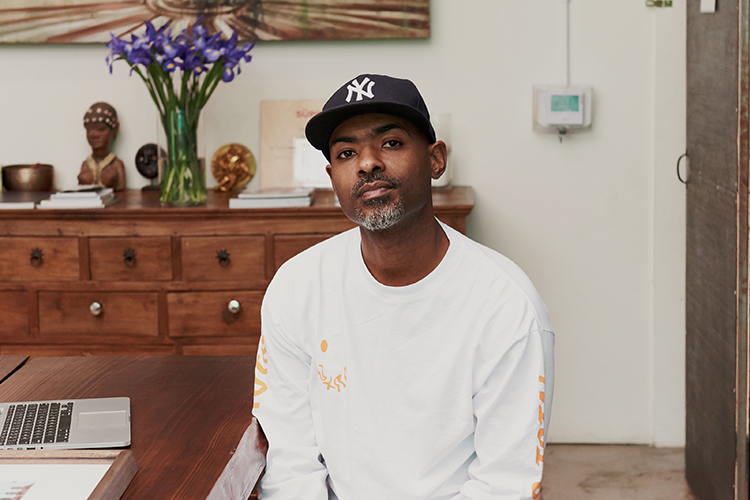
Proofs of concept have been developed for both techniques as research projects, said Hartmann, and the next step is to develop them from lab software to the point where they can be used by many students. This fall, students taking CS294-137 Immersive Computing and Virtual Reality will be the first test group.
“Many Web-based technologies existed to facilitate the shift to online instruction. However, this is not yet the case for VR,” said Hartmann. “Our work in contributing towards making VR ready for collaboration in the way the Web already is today
Research, Teaching and Learning Services AR/VR. Berkeley’s Research, Teaching and Learning Services, which provides support for campus instructors and researchers, will partner with CTO Allison and several of the awardees to develop a community of practice for AR/VR supporting instruction and research. It also will assess future possibilities and best existing practices to create a more formal program.
In addition to these funded projects, the Berkeley Changemaker Technology Innovation Grants will provide technology expertise to support awardee Shannon Jackson, associate vice chancellor of Art + Design, for the unprecedented multi-screen installation of artist and filmmaker Kahlil Joseph’s BLKNWS at Berkeley beginning in fall 2020. BLKNWS is described as a “fugitive newscast” that explores and exposes traditional media format and blurs the lines between art, journalism, entrepreneurship and cultural critique.
